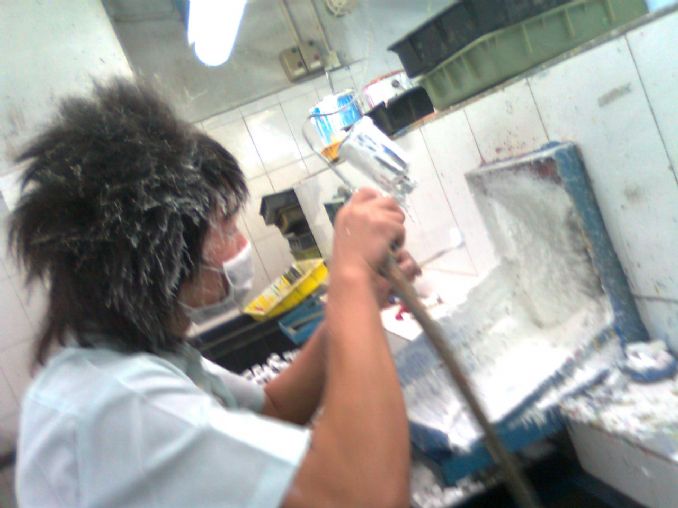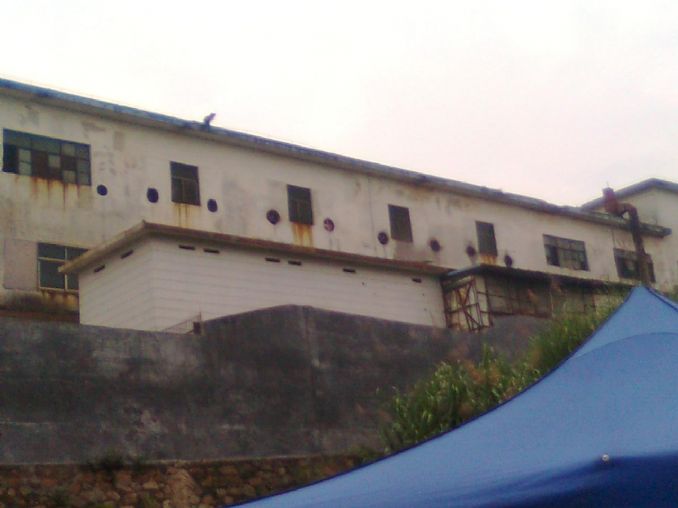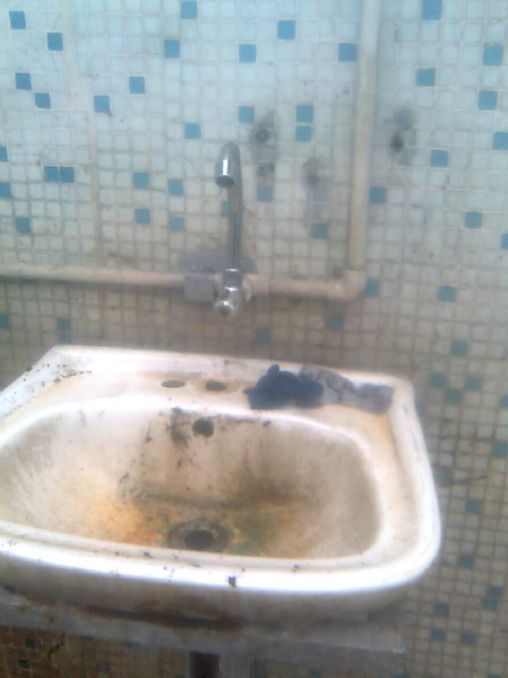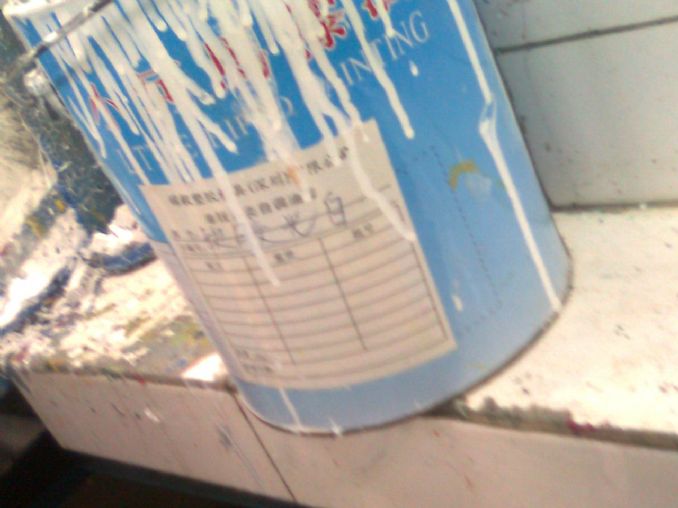An investigation of suppliers of Dollar General
Background

Working condition at in Yiu Yi, one of DGC’s suppliers.
With more than 8,800 stores across 35 states, Dollar General Corporation (DGC) is one of the biggest retailers in the U.S. The products on DGC’s shelves include paper products, cleaning liquids, health and beauty aids, food, snacks, household utensils, toys, clothing and seasonal items. The stores are mainly located in communities with less than 25,000 residents, although there are also some branches in urban areas. Customers of DGC are primarily low-income people, welfare recipients, and retirees. The company’s stated missions include: serving customers, improving consumers’ quality of life, increasing benefits for investors, respecting employees and providing them with personal development opportunities. Its slogan is, “Save time. Save money. Every day!”
Kohlberg Kravis & Roberts (KKR) is one of the biggest private equity firms in the world that sponsor and manage investment funds. KKR is the major investor and the biggest shareholder of DGC.
A series of investigations by China Labor Watch (CLW) revealed that while DGC helps low-income Americans save on the daily use products, DGC is cooperating with suppliers that have some of the worst working conditions. Although DGC has a code of corporate social responsibility, none of the company’s suppliers recently investigated by CLW follow the code.
Before DGC’s case went public in 2009, CLW and KKR had held multiple meetings. In those meetings, CLW found that KKR was more concerned about preventing the release of negative reports about DGC’s suppliers rather than solving the serious problems highlighted in CLW reports.
Apparently, KKR simply does not care about the labor conditions in DGC’s supplier factories. Consumers, in turn, have no idea that they are encouraging abuses of human rights while using DGC’s cheap products. It is time for KKR to make a decision: to continue supporting the immoral procurement policies or to chart a bolder path aimed at building real value from the bottom up.

Exterior View of MIL
DGC claims on its official website that their roughly 12,000 commodities are produced by only America’s most trustworthy manufacturers. However, the truth is that there are about 1,000 factories that supply DGC in China alone. DGC hired Bureau Veritas Group to conduct social responsibility audits of 700 of its suppliers. However, a China Labor Watch report pointed out that Bureau Veritas audits suffer from severe corruption, as well as technical drawbacks (the report is available on CLW’s website).
Using U.S. Customs records and other documents, China Labor Watch has randomly selected four of DGC’s suppliers and conducted investigations between February and June 2010, focusing on their recruitment policies, labor contracts, wages, hours, benefits, work safety, general living standards and grievance mechanisms. CLW investigators infiltrated the factories as hired workers themselves and also interviewed workers from outside of the factory.
The manufacturing plants under investigation include Keen League Manufacturing Limited (KLML), Mastercraft International Limited (MIL), Yiu Yi Plastic & Mould (Shenzhen) Col, Ltd.(Yiu Yi), and Hong Da Electronics Factory (Hong Da).
Basic Information of the Four Factories
KLML was founded in 2004. It is located in the Sha Xin Qiao Third Industrial District in Bao’an District of Shenzhen. The factory occupies 14,000 sq. yard and employs more than 700 people. KLML is invested by Hong Kong businessmen. Its products include ultrasonic washing machines and home appliance, such as milk froth makers, egg-beaters, electric can openers, juicers, blenders, grills, and electric pencil sharpeners. Its products are sold to European and the U.S. markets.
Founded in 1988, MIL was registered as Yu Tai Copper Factory (Yu Tai Tong Qi Wu Jin Chang). It is situated in the Ping Hu Bai Ni Keng Community in Longgang District of Shenzhen. With more than 100 employees, it occupies more than 11,900 sq. yard. This Hong Kong-invested enterprise designs and produces indoor lightings, table lamps, floor lamps, wall lamps and ceiling lamps. Its products are also sold to European and the U.S. markets..
Yiu Yi is located at No. 22, Xi Tou Road in the Second Industrial District of Song Gang Jie Dao Xi Tou Village, Bao’an district of Shenzhen. Its main products include: plastic moulds, Christmas crafts, plastic toys, poly products, timepieces, and electronics toys. Again, European and the U.S. companies are its major buyers.
Founded in 1994, Hong Kong-invested Hong Da is located in Xia Zhen Hong Ye Industrial District and produces telephones and radio cassette players for overseas buyers. The factory occupies 23,900 sq. yard and has about 500 employees.
Findings of the Investigations

Poor hygienic condition
Based on PR.C 1995 Labor Law and 2008 Labor Contract Law, the investigations conducted by CLW are focused on hiring and recruitment policies, labor contracts, work hours, wages, benefits, work safety and grievance machanismmechanism.
CLW investigations found that the basic legal rights of the employees are not met in these factories. The workers have to work long grueling hours and get shockingly low pay, while with little safety protection. In at least one factory under investigation, workers are paid for lying to inspectors.
Overtime working is especially egregious at DGC suppliers. Employees at the plants work averagely 300 hours per month during peak seasons and 250 hours per month during low seasons. The yearly accumulative overtime hours far exceed the maximum of 432 hours of overtime per year allowed by law#. Moreover, workers are oftentimes paid below the legal minimum overtime wage — and sometimes are not paid at all.
CLW investigators found the following labor violations in the four factories.
In KLML, the violations include
-
The factory keeps workers’ resident ID card for seven days when workers start working.
-
Workers are underpaid for overtime work.
-
No annual leave, maternity leave or marriage leave. Workers are not paid for sick leave.
-
Raw materials are piled up disorganizedly, which may cause potential safety issues.
-
No evaluations of occupational hazards. Protective equipment is not adequately provided. Workers are not provided with health examinations when starting or terminating their employment.
-
Overtime work totals 300 hours during peak seasons. Sometimes, workers only get one day off in a month.#
-
Draconian punishments
-
No trade union or other institutions that represent workers’ rights.
Workers’ own evaluations of the site: low wages and poor benefits. The slightest carelessness can result in a wage deduction.
In MIL, the violations include
-
The factory keeps workers’ resident ID card for one day when workers start working.
-
Workers who get piece rate wages are not paid for their overtime work. Workers are not paid during legal holidays.
-
No annual leave, maternity leave or marriage leave.
-
Equipment is not serviced regularly. There are potential risks for work injuries.
-
No evaluations of occupational hazards. Workers are not provided with health examinations when starting or terminating their employment.
-
Overtime work total 300 hours during peak seasons. Sometimes workers only get one day off in a month.
-
No trade union or other institutions that represent workers’ rights.
Workers’ own evaluations of the site: food is unsatisfied and dormitories are in poor conditions. The factory is poorly managed.
At Yiu Yi, violations include
-
The factory does not sign labor contracts with most employees.
-
Workers getting piece rate wages are not paid for overtime work. Workers are not paid during legal holidays.
-
No regular pay date.
-
Workers have to pay out-of-pocket for their factory uniforms.
-
No annual leave, maternity leave or marriage leave.
-
Workers are subject to 130 hours of wage deduction if leaving without advanced notice.
-
There are potential safety risks caused by poor management of chemicals.
-
No evaluations of occupational hazards. Workers are not provided by health examinations when starting or terminating their employment.
-
Overtime work total 300 hours during peak seasons. Sometimes workers only get one day off in a month.
-
There are few bonuses. However, the factory would prepare workers for inspections, and workers answering questions “correctly” would be rewarded with a once time bonus of $14.29.
Workers’ own evaluations of the site: You’d better not to take a job in this factory.
In Hong Da, violations include
-
Job applicants must apply for positions in group. Individual male workers would not be admitted.
-
Workers sign labor contracts but are not given copies.
-
No annual leave, maternity leave or marriage leave.
-
The base pay would be deducted by half if workers leave job without advance notice.
-
Overtime work is underpaid. Working on Saturdays areWorking on Saturdays is not considered overtime work.
-
Equipment is old, in poor conditions, and not serviced regularly. There are potential risks for work injuries.
-
No evaluations of occupational hazards. Workers are not provided with health examinations when starting or terminating their employment.
-
Overtime work total 300 hours during peak seasons. Sometimes workers only get one day off in a month.
-
Workers are subject to a monthly deduction of $34.29 for dining expensesfee, even if workers did not have meals in the factory cafeteria.
Workers’ own evaluations of the site: low wages, poor benefits. It is hard to know how the salary is settled. The machines are too old and out of order from time to time.

Dangerous chemical materials without care
Conclusion
Based on CLW’s investigation, workers’ rights are not fully respected in all the four factories in the aspects of recruitments, labor contracts, work hours, wages, benefits (social security insurance, holidays, dining, and dormitories, etc.), rewards and punishments mechanisms, workplace protections, and appeal mechanisms. The following table 1 is a summary of these findings. In general, the working conditions in these four factories are unsatisfied. We are shocked by the fact that although working for the largest small-box discount retailer in the U.S. and the largest asset management corporation in the world, .the workers are paid at such a low rate and working at least 10 hours per day in places with such low levels of health and safety protections
Most people may not link this kind of labor rights abuses immediately to KKR, which is unreasonable; since most of the profits DGC earned from the dismal life of Chinese workers finally go to KKR. KKR’s decreased demand for profits would play an important role in improving situations of workers of DGC’s suppliers.
The simple fact is that DGC and KKR can afford to pay higher wages. In fiscal 2009, the total sales of DGC was were about $11.8 billion and the gross profit was about 3.7 billion#. The majority of the profit went to KKR finally. KKR takes advantage of theis unsustainable relationships between resource-strapped Americans and exploited Chinese workers to bank millions of dollars on its investment.
We hope that DGC, KKR and DGC’s suppliers will cooperate to protect workers’ rights and to fulfill their social responsibility. While supplying the Americans with products in good quality and with low prices, Chinese workers should be able to work and live under protections and with dignity.